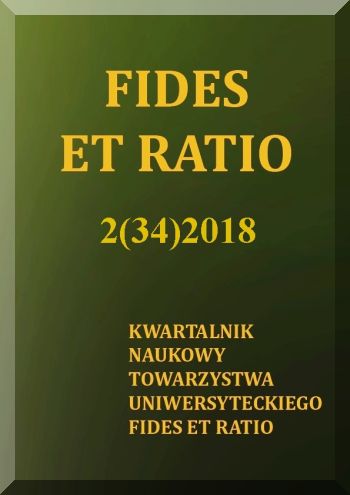Abstract
Mineralogy is one of the oldest scientific disciplines, dynamically developing over the centuries. This article will present the history of this field. The first documents containing information on minerals come from the Indian Veda (XI-X century BC) and Ramayama and Mahabharata (III-II century BC). In ancient times, Greek philosophers (Aristotle, Plato and Theophrastus of Ersos) and Roman (Pliny the Elder) also wrote about the minerals. The works of ancient writers concerned primarily the properties and recognition of gemstones as well as applications in medicine and magical rituals. The first minerals were described and classified based on their macroscopic features, such as color, gloss, hardness and crystal habit. More detailed methods of minerals research were developed in later ages. The significant development of physics in the fourteenth century and chemistry in the nineteenth century contributed to the progress of the science of minerals. Currently, the methods of mineral testing are at a very high level. Mineals are used properly in all branches of industry.
References
Agricola G. (2004), De Natura Fossilium (Textbook of Mineralogy), traduction: Mark C. Bandy et Jean A. Bandy, New York: Dover Publications.
Authier A. (2014), Une découverte qui a changé le monde: la diff raction des rayons X, Reflets de la Physique, nr 39, s. 24-29.
Bojarski Z., Gigla M., Stróż K., Surowiec M. (2007), Krystalografia, Warszawa: Wydawnictwo Naukowe PWN.
Ellinger H. (1997), Hinduizm, Kraków: Wydawnictwo Znak.
Graef M. (2003), Introduction to conventional transmission electron microscopy, Cambridge: Cambridge University Press.
Kaspar C., Jaussaud P. (2006), Physique et minéralogie au Muséum, Bulletin de la Société des sciences naturelles de l'Ouest de la France, nr 154, s. 21-24.
Lochak G. (1995), Pierre Curie et la symétrie, Séminaire de Philosophie et Mathématiques, s. 1-16.
Łukasiewicz J. (1845), K. Pliniusza Starszego Historyi naturalnej ksiąg XXXVII = C. Plinii Secundi Historiae naturalis libri XXXVII, Poznań: Księgarnia i drukarnia J. Łukaszewicza.
Maitte B. (2001), René-Just Haüy (1743-1822) et la naissance de la cristallographie, Travaux du Comité français d’Histoire de la Géologie, Comité français d’Histoire de la Géologie, 3ème série, nr 15, s. 115-149.
Maślankiewicz K. (1956), Georgius Agricola (1494-1555), Kwartalnik Historii Nauki i Techniki, nr 1/4, s. 655-683.
Povannrennykh A. S. (1972), Crystal Chemical Classification of Minerals, New York: Plenum Press.
Sacco F. G. (2014), Erasmus, Agricola and Mineralogy, Journal of interdisciplinary history of ideas, nr 3/6, s. 1-20.
Schneer C. J. (1995), Origins of mineralogy: the age of Agricola, The European Journal of Mineralogy, nr 7, s. 721-734.
Touret J. (2006), De la pétrographie à la pétrologie, Travaux du Comité français d’Histoire de la Géologie, Comité français d’Histoire de la Géologie, 3ème série nr 20, s.167-184.
